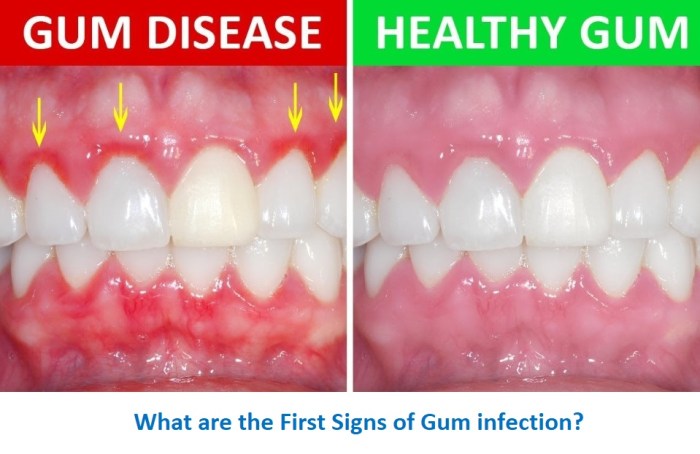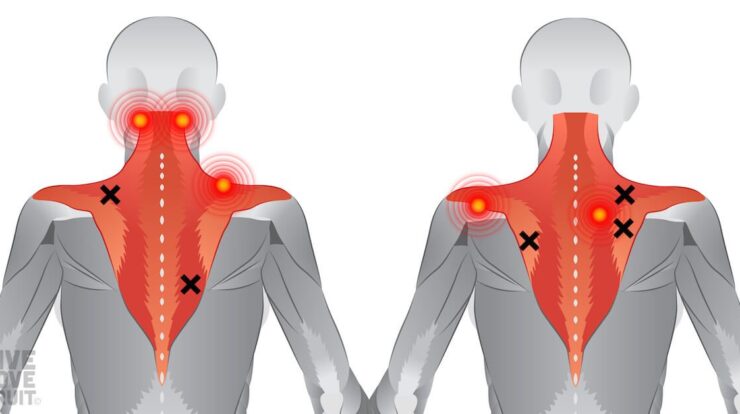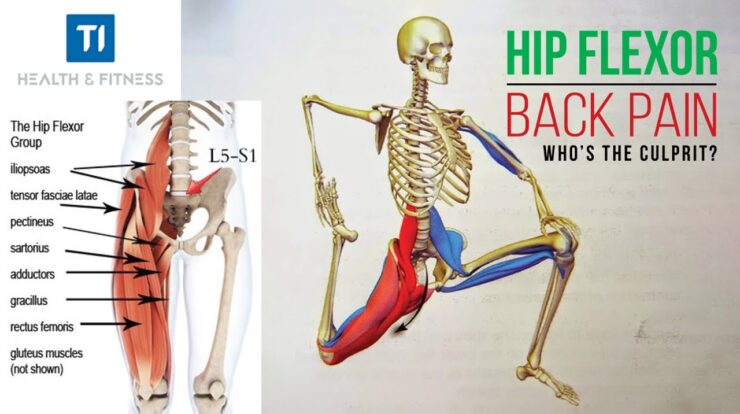
How to cure gum disease without a dentist – Suffering from gum disease? Don’t despair! While seeing a dentist is always recommended, there are plenty of things you can do at home to alleviate symptoms and promote gum health. Join us as we explore effective home remedies, lifestyle modifications, and alternative therapies for gum disease.
Whether you’re looking to reduce inflammation, improve oral hygiene, or find natural pain relief, this guide has got you covered. Let’s dive right in and discover how to cure gum disease without a dentist.
Home Remedies for Gum Disease
Gum disease is a common problem that can cause pain, bleeding, and even tooth loss. While there are many effective treatments for gum disease, some people prefer to try home remedies first. Here are a few of the most effective natural remedies for gum disease:
Salt water rinsesare a simple and effective way to reduce inflammation and kill bacteria in the mouth. To make a salt water rinse, dissolve 1/2 teaspoon of salt in 8 ounces of warm water. Rinse your mouth with the salt water for 30 seconds, then spit it out.
Repeat several times a day.
Gum disease is a common problem that can lead to serious health issues if left untreated. While it’s best to see a dentist for professional treatment, there are some things you can do at home to help cure gum disease.
Learn how to cure gum disease without a dentist and get started on the path to a healthier smile today.
Tea tree oilis a natural antiseptic and antibacterial agent that can help to kill bacteria in the mouth and reduce inflammation. To use tea tree oil for gum disease, add a few drops of tea tree oil to a glass of water and rinse your mouth with it for 30 seconds.
Repeat several times a day.
Baking sodais a natural alkalizing agent that can help to neutralize the acids in the mouth that can contribute to gum disease. To use baking soda for gum disease, make a paste of baking soda and water and apply it to your gums.
Leave the paste on for a few minutes, then rinse your mouth with water. Repeat several times a day.
Lifestyle Modifications for Gum Health

Maintaining a healthy lifestyle is crucial for overall well-being, including the health of your gums. Implementing positive lifestyle changes can significantly reduce the risk of developing gum disease and promote optimal oral hygiene.
Oral Hygiene Practices
Consistent and effective oral hygiene practices form the foundation for healthy gums. Regular brushing and flossing help remove plaque and bacteria that accumulate on the teeth and gum line. Plaque, if left undisturbed, can harden into tartar, which can irritate the gums and cause inflammation.
- Brush your teeth at least twice a day, especially after meals, using a soft-bristled toothbrush and fluoride toothpaste.
- Floss daily to remove plaque and food particles from between teeth, where a toothbrush cannot reach.
- Consider using an electric toothbrush, which has been shown to be more effective in removing plaque than manual toothbrushes.
Dietary Modifications
Your diet plays a significant role in maintaining gum health. Limiting your sugar intake is essential as sugar can feed the bacteria that cause gum disease. Consuming a balanced diet rich in fruits, vegetables, and whole grains provides your body with the vitamins and minerals necessary for healthy gums.
- Reduce your consumption of sugary foods and drinks, such as candy, soda, and processed snacks.
- Increase your intake of fruits and vegetables, which are high in antioxidants and vitamins that support gum health.
- Consider taking a vitamin C supplement, as vitamin C is crucial for maintaining healthy gums and connective tissues.
Alternative Therapies for Gum Disease

Gum disease is a common problem that can lead to serious health issues if left untreated. While traditional dental treatments are effective, some people may prefer to explore alternative therapies. These therapies may include oil pulling, acupuncture, and herbal supplements.
It’s important to note that while some alternative therapies may provide temporary relief from gum disease symptoms, they are not a substitute for professional dental care. It’s always best to consult with a dentist before starting any new treatment regimen.
If you’re looking for ways to cure gum disease without a dentist, there are some natural remedies that may help. You can try rinsing your mouth with salt water or using a hydrogen peroxide solution. You can also try applying tea tree oil or clove oil to your gums.
For more information, check out how to cure gum disease without a dentist .
Oil Pulling, How to cure gum disease without a dentist
Oil pulling is an ancient Ayurvedic practice that involves swishing oil in the mouth for 15-20 minutes. The oil is said to draw out toxins and bacteria from the mouth, helping to reduce inflammation and improve gum health.
Gum disease is a common problem that can lead to serious health issues if left untreated. While seeing a dentist is the best way to treat gum disease, there are some things you can do at home to help improve your oral health.
Click here to learn more about how to cure gum disease without a dentist.
There is some scientific evidence to support the benefits of oil pulling. A study published in the Journal of Ayurveda and Integrative Medicine found that oil pulling with coconut oil was effective in reducing plaque and gingivitis.
However, it’s important to note that oil pulling is not a cure for gum disease. It may help to improve gum health, but it’s not a substitute for regular dental care.
Acupuncture
Acupuncture is a traditional Chinese medicine technique that involves inserting thin needles into specific points on the body. It is said to help improve circulation, reduce inflammation, and relieve pain.
There is some evidence to suggest that acupuncture may be helpful in treating gum disease. A study published in the Journal of Clinical Acupuncture and Moxibustion found that acupuncture was effective in reducing gum bleeding and improving gum health.
Gum disease is a common problem that can lead to serious health issues if left untreated. Fortunately, there are a number of things you can do to cure gum disease without a dentist. By following the tips in this article, how to cure gum disease without a dentist , you can improve your oral health and prevent gum disease from recurring.
However, more research is needed to confirm the benefits of acupuncture for gum disease.
Herbal Supplements
There are a number of herbal supplements that are said to help improve gum health. These supplements include:
- Green tea extract
- Turmeric
- Echinacea
- Goldenseal
These supplements are said to have anti-inflammatory and antibacterial properties that may help to reduce gum inflammation and improve gum health.
However, it’s important to note that these supplements are not a substitute for professional dental care. It’s always best to consult with a dentist before starting any new supplement regimen.
Over-the-Counter Treatments for Gum Disease

Over-the-counter (OTC) treatments for gum disease are readily available at pharmacies and retail stores. These treatments aim to reduce inflammation, kill bacteria, and promote gum health.
Mouthwashes
- OTC mouthwashes containing chlorhexidine gluconate are effective in reducing plaque and gingivitis. Chlorhexidine is an antibacterial agent that kills bacteria that cause gum disease.
- Mouthwashes with cetylpyridinium chloride (CPC) also have antibacterial properties and can help reduce plaque and gingivitis.
Gels
- OTC gels containing hydrogen peroxide can help reduce inflammation and kill bacteria. Hydrogen peroxide is a powerful oxidizing agent that breaks down bacterial cell walls.
- Gels with triclosan are also effective in reducing plaque and gingivitis. Triclosan is an antibacterial agent that targets specific bacteria that cause gum disease.
Antibiotics
- OTC antibiotics, such as doxycycline and minocycline, can be used to treat gum disease in severe cases. These antibiotics are effective in killing bacteria that cause gum disease and reducing inflammation.
- It’s important to use OTC antibiotics only as directed by a healthcare professional to avoid side effects and antibiotic resistance.
When to See a Dentist

If you experience persistent or severe symptoms of gum disease, it’s crucial to seek professional dental care. Early diagnosis and treatment can help prevent further damage and preserve your oral health.
Signs and Symptoms Requiring Dental Attention
- Persistent gum bleeding, especially during brushing or flossing
- Receding gums, exposing more of the tooth roots
- Loose or shifting teeth
- Pain or sensitivity in the gums
- Persistent bad breath or a metallic taste in the mouth
- Swollen or puffy gums
- Pus between the teeth and gums
Last Word: How To Cure Gum Disease Without A Dentist
Remember, while these home remedies and lifestyle changes can help manage gum disease symptoms, they are not a substitute for professional dental care. If you experience persistent pain, bleeding, or swelling, don’t hesitate to schedule an appointment with your dentist.
Early diagnosis and treatment are crucial for preventing further damage and maintaining optimal oral health.
So, arm yourself with this knowledge and embark on a journey towards healthier gums. Your smile will thank you for it!
FAQ
Can I cure gum disease permanently at home?
While home remedies can alleviate symptoms and improve gum health, professional dental treatment is often necessary for long-term resolution of gum disease.
How long does it take to cure gum disease at home?
The duration varies depending on the severity of the disease and the effectiveness of the home remedies used. Some people may experience improvement within a few days, while others may require several weeks or months.
Is it possible to prevent gum disease?
Yes, maintaining good oral hygiene, eating a balanced diet, and avoiding tobacco use can significantly reduce the risk of developing gum disease.





